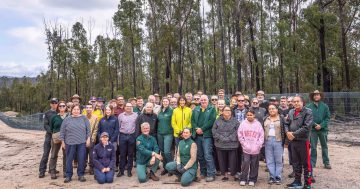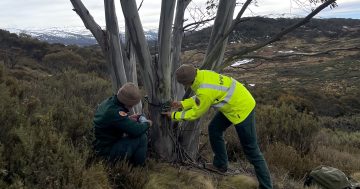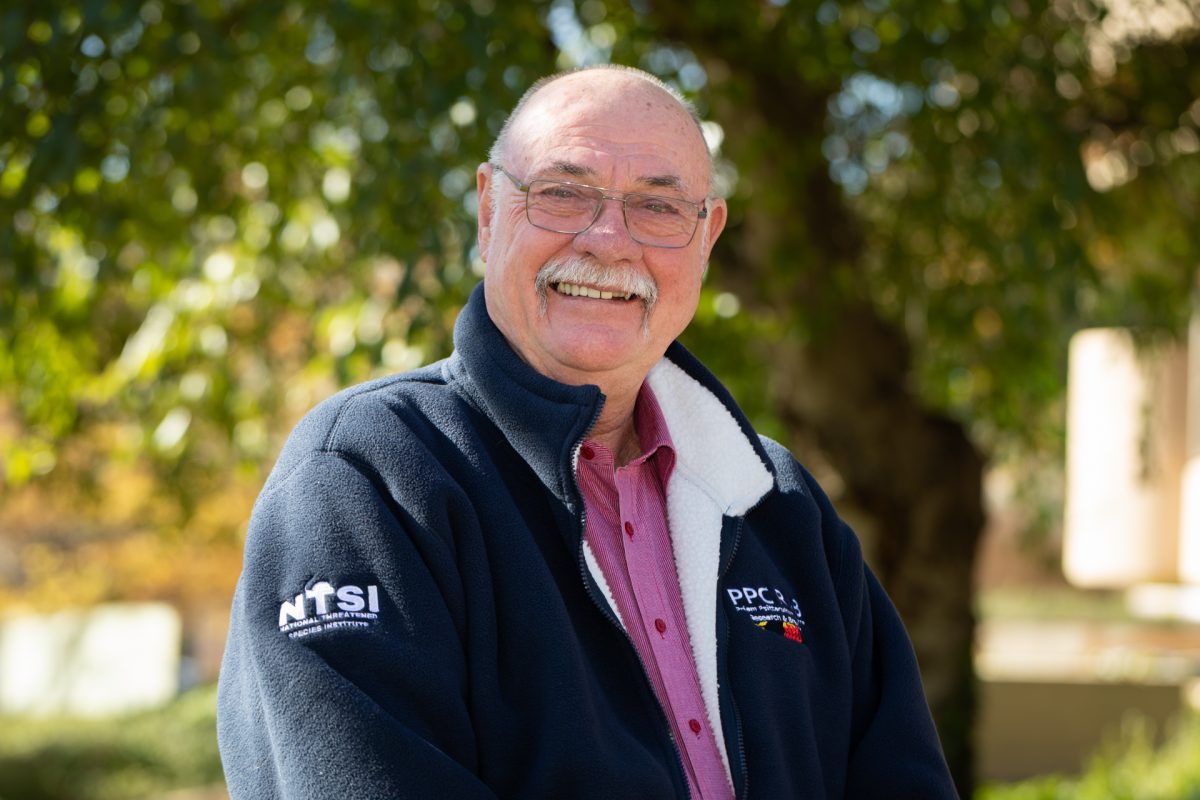
Warren Entsch wears his heart on his sleeve for native species conservation. Photo: Michelle Kroll.
One of the first things you see in MP Warren Entsch’s office is an enormous crocodile skull. Beneath your feet, there’s a crocodile skin.
The walls are covered with cartoons and headlines about the colourful life of a Top End politician who deals with everything from croc attacks to mining disputes in one of Australia’s most remote electorates. He’s been a railway porter, a real estate agent and is (almost) the father of the House, clocking up nearly 23 years in Federal parliament.
But the Member for Leichardt’s greatest passion is conserving threatened species.
He and his friends Peter and Val Gowland are the driving forces behind the National Threatened Species Institute (NTSI) at Bungendore. The registered environmental organisation conducts rigorous, scientifically based breeding programs for animals ranging from the Smoky Mouse to Orange-bellied Parrots.
With limited government support, the NTSI runs almost entirely on philanthropy and has had remarkable success for more than a decade.
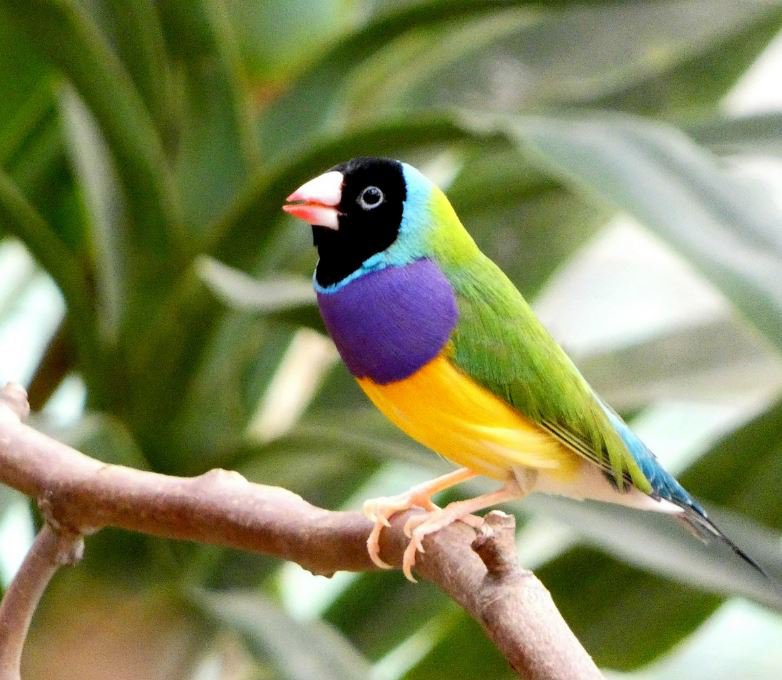
The stunning Gouldian finch. Photo: Linda De Volder.
It began when nine-year-old Warren’s father built an aviary for his finches. When adult life, the Air Force and then politics intervened, bird collecting was put on hold. A prized collection of Gouldian finches went to a friend at Herberton with the promise he’d return for them one day.
A remarkable chain of events ensued: the finches, once prolific, experienced catastrophic decline as rice crops took over their habitat, chemicals used to grow tobacco impacted them and exotic diseases spread.
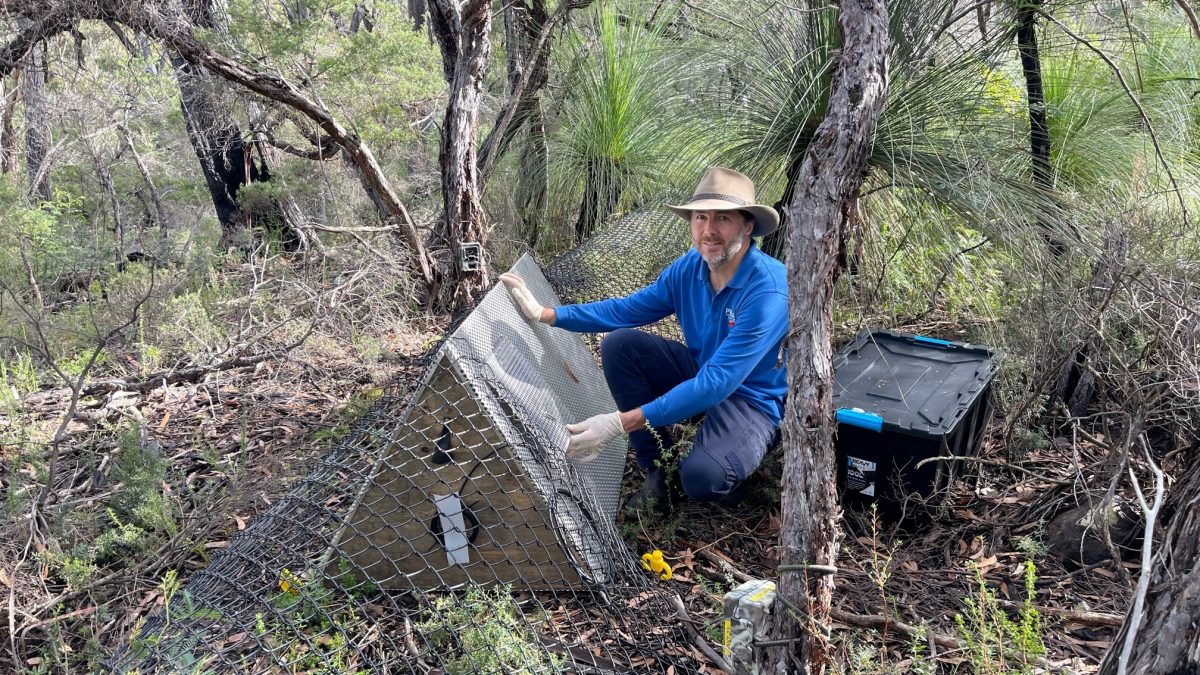
Daniel Gowland, founding director and CEO of NTSI, at a release sight for Smoky Mice. Photo: Supplied.
“It broke my heart to see areas like Edith Falls where the finches were once as common as flies,” he tells Region. “It turned me into somebody who was absolutely committed to protecting these birds.”
His chance came as an elected representative through the Mareeba wetlands project, already rejected by neighbouring MP Bob Katter as a green folly.
Warren disagreed.
“I thought it was a great idea to capture water from the Dimbulah irrigation project and build a series of cascading dams”, he says.
“It wasn’t technically in my electorate, but I said I’d do everything I could to help if I could get support for my pet projects, including a Gouldian release program.”
Warren had an interest in Hurricane Station on the Mitchell and knew it had a remnant population of Gouldian finches. But the project hit a snag when National Parks and Wildlife raised concerns about potential genetic contamination from other finches.
But remarkably, Warren’s old friend still had his original finch population. There’d been no outbreeding, the birds’ descendants were healthy, and their source was proven.
There was still “a hell of a fight” getting release permits from authorities.
“I said in my view, you’ve got two choices. I might accidentally open the aviary door one day, you can prosecute me and I’ll launch my defence, or you can get out of the way. Let us do this, and I’ll give you credit you might not deserve when this works.”
It did indeed work.
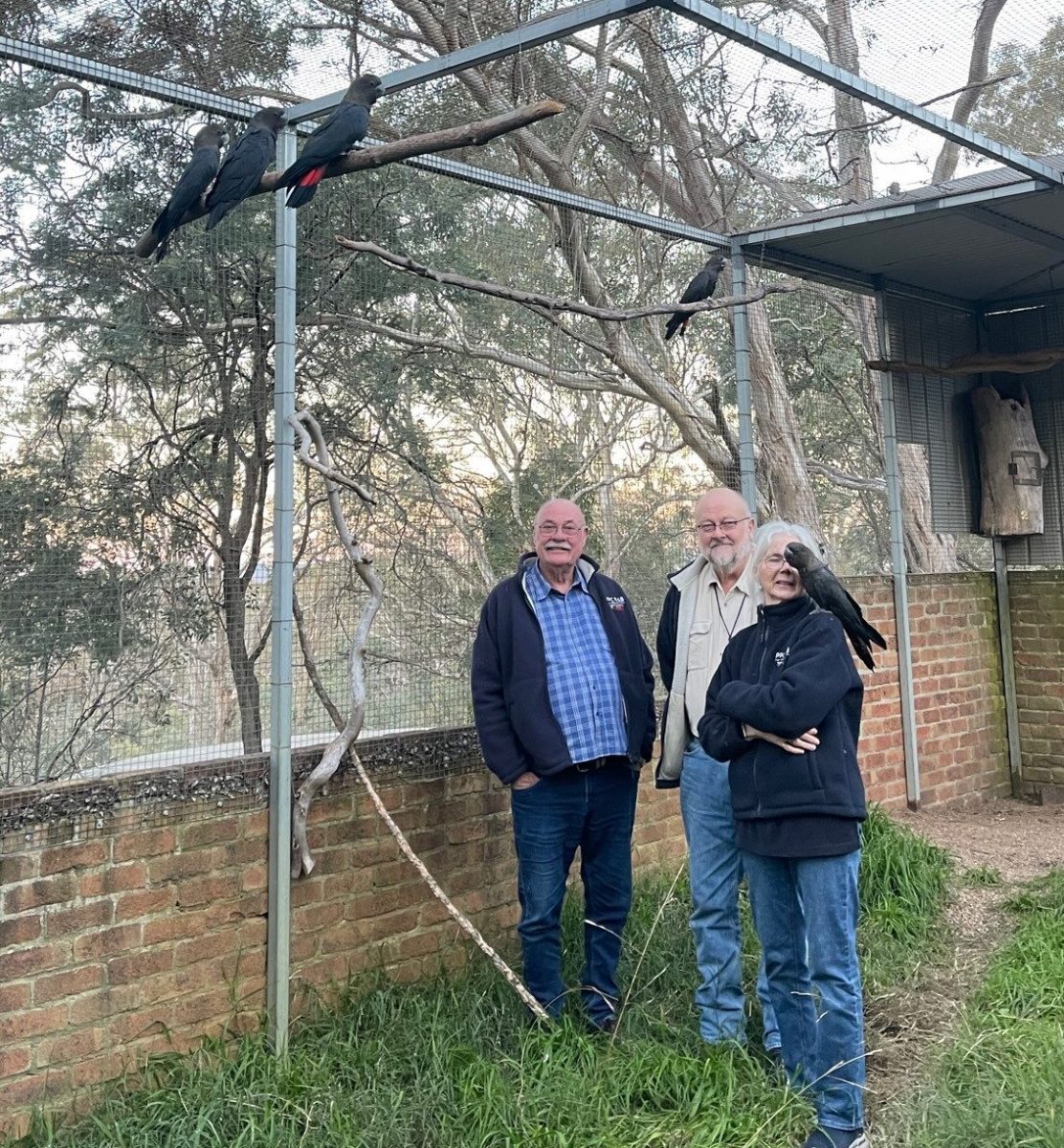
Warren and Peter and Val Gowland and glossy black cockatoos at Bungendore. Photo: Supplied.
Several thousand birds were released over the years, and the Gouldian finch population now stretches through the Western Cape and Kowanyama.
“When we released those birds after 25 generations of captive breeding, they still knew how to escape predators, how to flock, everything they needed to survive in the wild. It made me realise we could do this,” Warren says.
The experience also clarified the role of skilled private breeders – and the fact that zoos, while important for research, are often focussed on display, increasing species’ vulnerability to introduced diseases.
That realisation was the genesis for the NTSI.
Using the best national expertise, the NTSI sets up rigorous protocols for feeding and breeding some of Australia’s rarest birds, reptiles and mammals. Other breeders who meet the criteria can participate but must return the animals for release and keep insurance populations.
NTSI then identifies suitable release sites in national parks or on private land, “sanitising ” sites by fencing and removing predators.
There have been significant successes: New Holland Mice have done well at Captains Flat and a Smoky Mice project is well underway. Green and Gold Bell Frogs are breeding well and the effort to save endangered Orange-bellied Parrots shows promising signs.


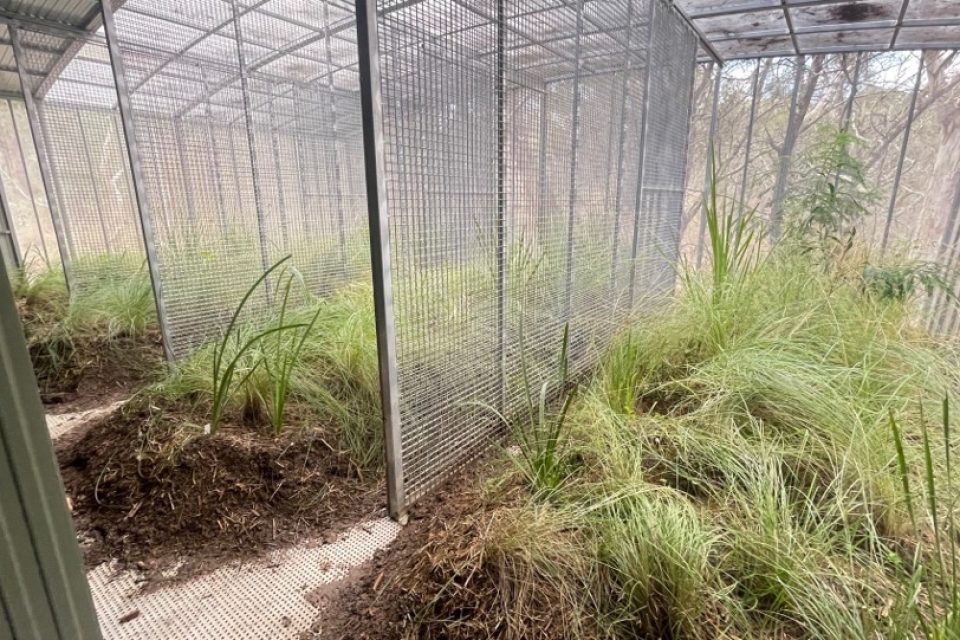


Eastern Ground Parrots are a major priority: a fire victim called Wally, nursed back to health, provided valuable insights so NTSI knew the birds would thrive before acquiring individuals under licence for breeding.
Aviaries are climate controlled, sown with native species from individual habitats, and monitored via CCTV. An exotic bird breeding program helps with finances and Warren says good governance is critical to NTSI’s success.
He’s passionate about controlling the international bird trade because of the threat to the birds and the diseases that can enter the country. He cites a roaring trade in eggs and animals that he says often circumvents controls.
Warren is nearing the end of his lengthy Parliamentary career, but there’s still much to be done up north. But a part of his heart is always at Bungendore, where fledgling birds, baby mice and tiny lizards presage hope for the future.
Original Article published by Genevieve Jacobs on Riotact.







